Sacred Thread Pooja, Yagyopaveeta Ceremony, Home Pooja Items, Janeo Thread
$22.99 Original price was: $22.99.$14.00Current price is: $14.00.
Sacred Thread Ceremony:
An Ancient Ritual of Spiritual Significance
Introduction
The sacred thread ceremony, known as “Upanayana” in Hinduism, is a time-honored tradition deeply rooted in spiritual and cultural significance. This ritual marks a crucial milestone in an individual’s life, symbolizing a deeper connection to spirituality and the pursuit of knowledge.
Significance of the Sacred Thread Ceremony
The sacred thread ceremony holds immense religious importance, signifying the commencement of a sacred journey towards higher knowledge. The ritual is laden with symbolism, emphasizing the individual’s commitment to moral and ethical values.
Preparation for the Ceremony
Before the sacred thread ceremony takes place, meticulous preparation is essential. The gathering of ritual items and the mental and spiritual readiness of the participant play a crucial role in ensuring the ceremony’s sanctity.
The Ritual Steps
The ceremony involves several steps, starting with choosing an auspicious date. Ritualistic purification follows, accompanied by the chanting of mantras and fervent prayers seeking divine blessings.
The Thread and its Symbolism
The sacred thread, also known as “Yagyopaveeta,” comes in various types, each holding a unique symbolic representation. It serves as a reminder of the responsibilities and duties the individual must shoulder.
Role of the Priest
The priest plays a pivotal role in guiding the participant through the ceremony. Their responsibilities extend beyond the physical aspects, encompassing spiritual guidance and imparting wisdom.
Attire and Decorations
Traditional attire and elaborate decorations contribute to the ceremonial ambiance. The sacred thread ceremony is not only a spiritual event but a visually captivating one.
Participation of Family Members
Family members actively participate in the ceremony, each having specific roles and responsibilities. The collective blessings and prayers reinforce the familial bonds and spiritual aspirations.
Importance in Different Cultures
While primarily associated with Hinduism, variations of the sacred thread ceremony exist in different regions and cultures. Each variation reflects the unique cultural significance attached to the ritual.
Modern Adaptations
In the modern era, the sacred thread ceremony has undergone changes to adapt to evolving societal norms. Despite these adaptations, its relevance in fostering spiritual growth remains intact.
Challenges and Controversies
Evolving perspectives and societal changes have led to debates surrounding the sacred thread ceremony. Some criticize it as outdated, while others argue for its preservation as a cultural and spiritual heritage.
FAQs
- What is the sacred thread ceremony?
- The sacred thread ceremony, or Upanayana, is a Hindu ritual marking the initiation of an individual into the study of Vedas and pursuit of knowledge.
- Why is it considered significant in Hinduism?
- The ceremony symbolizes the beginning of a sacred journey towards higher knowledge, emphasizing moral and ethical values.
- How long does the ceremony usually last?
- The duration varies but typically takes a day, including preparatory rituals, the main ceremony, and post-ceremonial activities.
- Can women participate in the ritual?
- Traditionally, Upanayana is exclusive to males, but there are evolving perspectives, and some advocate for gender-inclusive practices.
- Are there any alternative names for the ceremony?
- Yes, the sacred thread ceremony is also known as “Yagyopaveeta” or “Janeu.”
Conclusion
The sacred thread ceremony remains a timeless tradition, weaving spirituality into the fabric of individuals’ lives. Its enduring significance transcends time, making it a profound and cherished ritual in the pursuit of spiritual enlightenment.
Specification:
Item: Yagyopaveeta/Janeo/Sacred Thread
Quantity: Pack of 40
Material: Cotton Thread
Color: White / Yellow
Occasion: Janeo(Sacred thread), Pooja’s

Only logged in customers who have purchased this product may leave a review.

















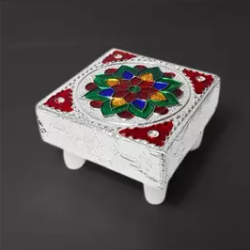
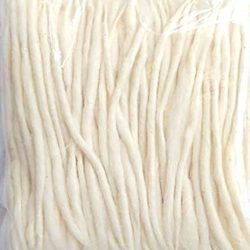



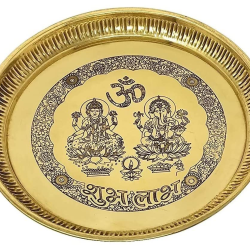
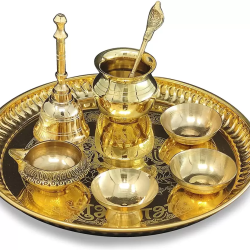
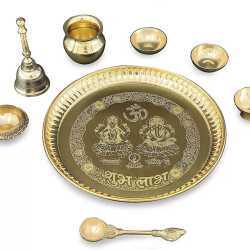
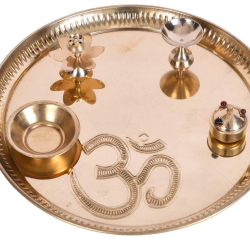
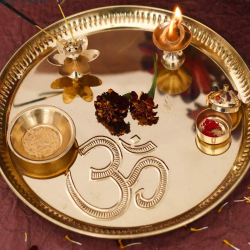
Reviews
There are no reviews yet.